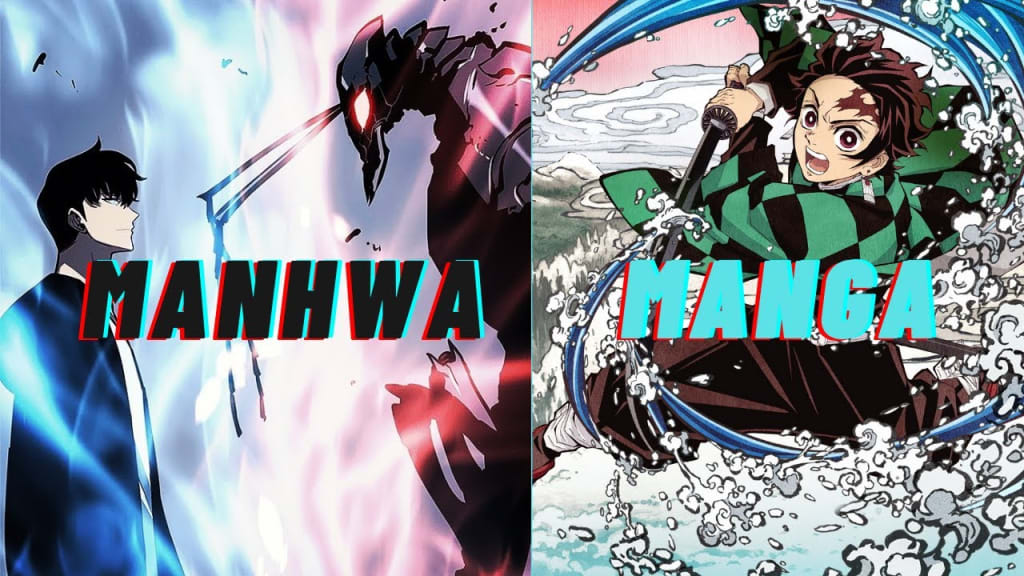The difference between manga and Manhwa
The world of comics has grown incredibly vast in the past century alone. However, specific distinctions have emerged, such as manga from Japan and manhwa from Korea. While they may seem interchangeable to the uninitiated, these two are fundamentally different in style, content, and their place in the cultural landscape.

The world of comics has grown incredibly vast in the past century alone. However, specific distinctions have emerged, such as manga from Japan and manhwa from Korea. While they may seem interchangeable to the uninitiated, these two are fundamentally different in style, content, and their place in the cultural landscape.
The first crucial difference between manga and manhwa is their country of origin. Manga is quintessentially Japanese; it is an art form that has permeated every aspect of popular culture. From animated TV shows to the fashion industry, manga has become the go-to source for Japanese inspiration. In contrast, manhwa is the Korean equivalent of comics and has not had the same cultural saturation.
Manhwa comics often place greater emphasis on character development, political themes, and social commentary. Koreans' distinctive political and social climate drives this, as well as their unique art style that tends to be darker and more serious than manga. In comparison, manga is known for being more upbeat, with fast-paced action and a focus on heroic characters.
Furthermore, manhwa tends to have a stricter adherence to realism and is less fantastical than manga. The focus is on portraying the world as it is, with the inclusion of contemporary issues and current affairs. In contrast, manga often leans towards fictional worlds and magical themes, portraying the impossible as possible.
In terms of the visual style, manhwa and manga are also distinct. Manga panels are usually smaller, and the shading and detail work are more intricate. On the other hand, manhwa panels are generally larger, with a more simplistic approach to shading and less detail work contained in each panel.
Perhaps the most significant difference between manhwa and manga is the way the two narratives are structured. Manga generally follows a set episodic format, with stories arranged according to a handful of standardized genres, such as shounen, seinen, or shoujo manga. In contrast, manhwa comics' narratives are more fluid, with topics ranging from political commentary to romance novels and everything in between.
Manga comics have more emphasis on the broader story arc, with a clear beginning, middle, and end that historically take 23 volumes or more. In contrast, Manhwa comics often have a complete narrative in 1-2 volumes.
Since manga is the most popular comic genre globally, it is not surprising that it has had a greater impact on western comics. Hugely popular works like Naruto, One Piece, and Dragon Ball Z have all helped spread awareness of manga's unique style, and with anime adaptations, they have made their way to western audiences.
Manhwa, on the other hand, has yet to have the same impact, at least outside of Korean audiences. Still, some manhwa has made it into the western market, such as "The White Tiger," "Priest," and "The Breaker." These manhwa have found their niche fans who appreciate the unique and darker style of manhwa comics.
In conclusion, while these two comics may seem interchangeable to the uninitiated, they are vastly different in style and content. Manga is known for its fast-paced, upbeat style, magical themes, and longer story arcs, with iconic franchises like Dragon Ball Z and Naruto. Meanwhile, Manhwa places greater emphasis on character development, social commentary, and realism, with stories that are less fantastical and more compact.
Manhwa is an exciting and evolving genre, with popular works that cover a wide range of genres, from action-packed dramas to political commentary. While manga dominates global markets, manhwa comics are equally deserving of recognition for their contributions to the world of comics.
About the Creator
Chiara Landini
I am a native Italian hailing from Los Angeles with a passion for technology, entertainment, literature, and comic books.
Enjoyed the story? Support the Creator.
Subscribe for free to receive all their stories in your feed. You could also pledge your support or give them a one-off tip, letting them know you appreciate their work.






Comments
There are no comments for this story
Be the first to respond and start the conversation.